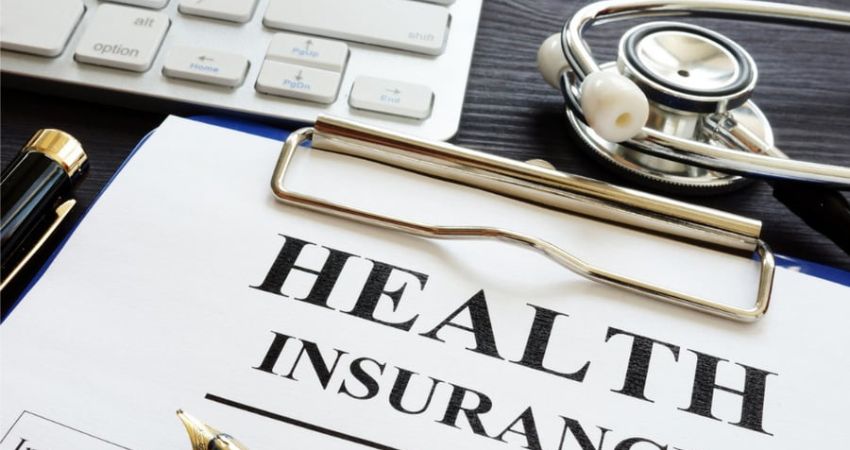Small Business Liability Insurance Coverage Options: Small businesses face a myriad of risks in today’s dynamic business environment, ranging from property damage to legal liabilities. Small business liability insurance serves as a vital safeguard, protecting entrepreneurs from the financial consequences of unforeseen events and lawsuits. However, navigating the array of coverage options can be daunting. In this article, we explore the various types of liability insurance coverage available to small businesses, helping entrepreneurs make informed decisions to mitigate risks and protect their enterprises.
Understanding Small Business Liability Insurance Coverage Options
Small business liability insurance is designed to shield entrepreneurs from liabilities arising from third-party claims, including bodily injury, property damage, and legal expenses. This type of insurance provides financial protection and peace of mind, allowing businesses to focus on growth and innovation without the constant threat of litigation.
General Liability Insurance

General liability insurance is the cornerstone of small business liability coverage, protecting against common risks such as slip-and-fall accidents, property damage, and advertising injuries. This broad coverage extends to third-party claims for bodily injury or property damage caused by the business’s operations, products, or services. General liability insurance is essential for small businesses of all types and sizes, providing a safety net against unforeseen liabilities.
Professional Liability Insurance (Errors & Omissions Insurance)
Professional liability insurance, also known as errors and omissions (E&O) insurance, is tailored for businesses that provide professional services or expertise. This coverage protects against claims of negligence, errors, or omissions that result in financial losses for clients. Professionals such as consultants, accountants, and architects rely on E&O insurance to defend against lawsuits alleging professional misconduct or inadequate performance.
Product Liability Insurance
Product liability insurance is essential for businesses that manufacture, distribute, or sell goods to the public. This coverage protects against claims of injury or property damage caused by defective products, manufacturing flaws, or inadequate warnings. Product liability insurance shields businesses from costly lawsuits and settlements stemming from product-related injuries or damages, ensuring financial security and brand protection.
Cyber Liability Insurance
In today’s digital age, cyber threats pose a significant risk to small businesses, including data breaches, hacking incidents, and ransomware attacks. Cyber liability insurance provides coverage for expenses related to data breaches, including forensic investigations, legal fees, notification costs, and credit monitoring services. This coverage is essential for businesses that handle sensitive customer information or rely on digital assets for operations.
In the fast-paced digital world we live in, technology plays a vital role in how small businesses operate. From storing sensitive customer data to conducting transactions online, businesses heavily rely on digital systems to streamline their operations and connect with their customers. However, with these technological advancements come risks, particularly in the form of cyber threats.

Cyber threats, such as data breaches, hacking incidents, and ransomware attacks, pose significant risks to small businesses. A data breach occurs when unauthorized individuals gain access to confidential information, such as customer records or financial data. Hackers exploit vulnerabilities in a company’s computer network to steal this information, which can lead to severe consequences, including financial losses, damage to reputation, and legal liabilities.
Commercial Property Insurance
While not strictly liability insurance, commercial property insurance is crucial for small businesses to protect their physical assets against risks such as fire, theft, vandalism, and natural disasters. This coverage extends to buildings, equipment, inventory, and furniture, providing financial reimbursement for repair or replacement costs in the event of covered perils. Commercial property insurance safeguards businesses against property-related liabilities and ensures continuity of operations.
Umbrella Liability Insurance
Umbrella insurance gives you extra protection if you’re sued for more than your regular insurance covers. Think of it as an extra safety net on top of your existing policies, like general liability and commercial auto insurance.
Here’s how it works: Let’s say something really bad happens, like a big accident at your business or someone gets seriously hurt. If the costs of the damage or injury go beyond what your regular insurance pays for, that’s where umbrella insurance steps in. It kicks in when things get really serious, like if there’s a huge lawsuit against you that goes way over your normal policy limits.

For small business owners, this kind of insurance is like having a backup plan for the worst-case scenarios. It’s there to give you peace of mind, knowing that even if something unexpected and costly happens, you’re still covered. So, if you ever face a major lawsuit or a disaster that goes beyond your regular insurance, your umbrella policy has got your back.
Tailoring Coverage to Specific Risks and Industries
Small business owners need to get insurance that fits their needs. They should make sure it covers the risks they face in their industry. For instance, builders might need extra protection for construction work. Restaurants might want insurance for problems related to serving alcohol. Talking with experts, like insurance agents, can help small businesses find the right coverage. This way, they can stay safe from industry-specific risks.
Small business owners, like those who run shops or cafes, need to think about insurance. But it’s not just about getting any insurance. They should get the kind that suits their business. This means getting coverage that deals with the specific risks they face in their industry.
For example, think about builders. They work with tools and heavy equipment. So, they need insurance that can help if there’s an accident on the job site. This could cover things like injuries to workers or damage to property. It’s called liability insurance. But it’s not a one-size-fits-all deal.
Let’s switch gears to restaurants. They serve food and drinks, including alcohol. Now, serving alcohol comes with its own set of risks. What if someone drinks too much and causes trouble? That’s where liquor liability insurance comes in handy. It helps protect the business if there’s an alcohol-related incident.
Conclusion
Small business liability insurance is a critical component of risk management strategy, providing financial protection against liabilities that could otherwise cripple or bankrupt a business. By understanding the various coverage options available, including general liability, professional liability, product liability, cyber liability, and umbrella insurance, small business owners can mitigate risks and safeguard their enterprises from unforeseen events and legal challenges. With the right combination of insurance coverage tailored to their specific needs and industry risks, entrepreneurs can navigate the complexities of business ownership with confidence and resilience.

